In the modern business landscape, intellectual property (IP) plays a vital role in innovation and economic success. Consequently, securing IP certification has emerged as an essential process for many businesses. This article delves into the importance of IP certification by exploring its definition, types, the process of obtaining it, and its numerous benefits.
Understanding IP Certification
IP certification refers to the formal acknowledgment of the ownership and rights associated with intellectual property. This process helps businesses affirm their authority over their creations, enabling them to leverage these assets for competitive advantages.
Definition of IP Certification
At its core, IP certification provides legal protection to creators and inventors by recognizing their intellectual contributions. This may include inventions, literary works, trademarks, and other forms of creative output. Fundamentally, IP certification serves as an acknowledgment from a governing body that the intellectual property in question is both original and legally protected.
The significance of IP certification extends beyond mere recognition; it also plays a vital role in fostering innovation. By ensuring that creators can protect their work, IP certification encourages investment in research and development. When inventors know that their ideas will be safeguarded, they are more likely to take the risks associated with bringing new products and services to market. This cycle of innovation ultimately benefits consumers and society as a whole, as it leads to a wider array of choices and advancements.
The Role of IP Certification in Business
In the realm of business, IP certification plays several pivotal roles. It not only helps prevent unauthorized use of creative works but also establishes a legitimate marketplace for the exchange of innovative ideas. This is particularly important in industries where creativity and originality are the driving forces behind success.
Moreover, having an IP certification can facilitate investor confidence, as it reassures investors that their funding is directed towards a legally protected venture. Businesses can confidently negotiate deals, licenses, and partnerships, knowing that their intellectual property is safeguarded. Additionally, IP certification can enhance a company’s brand value and reputation. A certified IP portfolio can serve as a powerful marketing tool, signaling to consumers that a business is committed to quality and innovation. This can lead to increased customer loyalty and a stronger market position, as customers often prefer to engage with brands that demonstrate a commitment to protecting their unique offerings.
Furthermore, IP certification can open doors to international markets. Many countries have specific requirements for recognizing and protecting intellectual property, and having a certified IP can simplify the process of entering these markets. It allows businesses to navigate complex legal landscapes more effectively, ensuring that their innovations are protected across borders. This global perspective not only expands market reach but also enhances the potential for collaboration and partnerships with international entities, further driving growth and innovation.
The Different Types of IP Certification
IP certification encompasses various types, each catering to different aspects of intellectual property. Understanding these types can help businesses determine the best approach for protecting their innovations and creations.
Trademark Certification
Trademark certification is essential for businesses that wish to protect their brand identity. A trademark can include logos, slogans, and brand names that distinguish goods or services in the marketplace. By obtaining trademark certification, businesses can prevent others from using similar marks that could confuse consumers. Furthermore, a registered trademark can enhance a company’s credibility and provide a competitive edge, as it signifies a commitment to quality and authenticity. Companies can also leverage their trademarks in marketing strategies, creating a strong emotional connection with their audience and fostering brand loyalty.
Patent Certification
Patent certification is crucial for inventors looking to protect their inventions. A patent grants the inventor exclusive rights to manufacture, use, and sell their invention for a specified period. This exclusive advantage can be critical for recuperating development costs and generating revenue from the innovation. Additionally, having a patent can attract investors and partners who are interested in commercializing the invention, as it serves as a tangible asset that can increase the overall value of a business. Moreover, the patenting process often involves thorough research and documentation, which can help inventors refine their ideas and enhance the overall quality of their inventions.
Copyright Certification
Copyright certification protects creators of original works such as literature, music, and art. By obtaining copyright certification, creators secure exclusive rights to reproduce, distribute, and showcase their works. This legal protection is fundamental in allowing artists and writers to receive recognition and financial gain from their creations. Additionally, copyright certification can facilitate the licensing of works, enabling creators to monetize their intellectual property through various channels, such as film adaptations, merchandise, or public performances. In an increasingly digital world, copyright also plays a vital role in combating piracy and unauthorized use, ensuring that creators maintain control over their works in an ever-evolving landscape of content consumption.
The Process of Obtaining IP Certification
Obtaining IP certification is a structured process that requires careful preparation and understanding of legal requirements. The following steps provide a guide through the process, ensuring that businesses are well-prepared.
Preparing for IP Certification
The preparation phase entails a thorough evaluation of the intellectual property to be certified. Businesses should document the creation process, including dates, design sketches, and other pertinent materials that demonstrate originality. This documentation is vital when applying for certification. Furthermore, it is beneficial to engage with legal experts who specialize in intellectual property law to ensure that all aspects of the IP are covered comprehensively. They can provide insights into potential pitfalls and help refine the documentation to meet the specific standards set by the certification authorities.
The Application Process
The application process for IP certification varies depending on the type of certification being sought. Typically, businesses must submit the necessary forms along with the required documentation to the respective governing body. This step can be intricate, as each type of IP has its own set of rules and regulations that must be adhered to.
- For trademarks, this involves applying with the national or regional trademark office, where the mark will be examined for distinctiveness and potential conflicts with existing trademarks.
- For patents, inventors must provide a detailed description of the invention and its background along with drawings or schematics, ensuring that the invention is novel and non-obvious.
- In the case of copyrights, a formal application along with a copy of the work is generally required, which helps establish ownership and protect the work from unauthorized use.
It is also essential to check for any existing IP that may conflict with the application. Conducting a thorough search can save businesses from potential legal disputes later. This proactive approach not only safeguards the application but also strengthens the overall IP strategy of the business.
Post-Certification Requirements
Once certification is obtained, businesses must understand the responsibilities associated with maintaining their IP rights. For trademarks, this might include regular renewals, while patents require maintenance fees to uphold protection. Additionally, businesses should remain vigilant about the expiration dates of their certifications to avoid unintentional lapses in protection.
Moreover, businesses should actively monitor the market for any infringement of their IP rights. This vigilance allows them to take necessary legal actions if unauthorized use or copying occurs, ensuring their investments in IP remain protected. Employing monitoring services or conducting regular audits can help detect potential infringements early, allowing businesses to respond swiftly and effectively. Engaging in educational initiatives about IP rights within the organization can also foster a culture of respect for intellectual property, further safeguarding their assets in the long run.
The Benefits of IP Certification
The advantages of obtaining IP certification are manifold, impacting various facets of a business. From legal protection to enhanced market presence, the benefits underscore the vital need for certification in today’s competitive landscape.
Protection of Intellectual Property
The primary benefit of IP certification is the legal protection it provides. Businesses that have secured certification can defend their rights against unauthorized use, which is crucial in preserving the value of their innovative assets.
Furthermore, IP certification can deter potential infringers due to the potential legal repercussions associated with the misuse of certified intellectual property. This protective wall empowers businesses to innovate without fear of exploitation.
In addition to safeguarding against infringement, IP certification also plays a pivotal role in establishing a clear ownership framework. This clarity can be particularly beneficial during mergers and acquisitions, where the value of intellectual property can significantly influence negotiations. By having certified IP, businesses can present a well-documented portfolio of their innovations, thereby enhancing their attractiveness to potential buyers or partners.
Enhancing Business Reputation
IP certification can significantly enhance a business’s reputation. By showcasing certified IP, businesses signal to customers and partners that they value creativity and originality. This perception can lead to increased customer loyalty and attract strategic partnerships.
Moreover, displaying IP certification can elevate a brand’s status, positioning it as a leader in innovation within its industry. Customers are more inclined to engage with brands that respect and protect intellectual property.
Additionally, the presence of IP certification can serve as a powerful marketing tool. Companies can leverage their certified status in promotional materials, highlighting their commitment to innovation and quality. This not only differentiates them from competitors but also fosters trust among consumers who are increasingly aware of the importance of intellectual property rights in the products they choose to support.
Facilitating Business Growth
IP certification can facilitate business growth in various ways. For instance, having certified intellectual property can serve as leverage in attracting investment, as it assures investors of the value locked in the business’s innovations.
Additionally, businesses can explore various revenue-generating avenues, such as licensing agreements, where they can allow others to utilize their IP in exchange for royalties. This can create an additional income stream that contributes positively to the business’s bottom line.
Moreover, IP certification can open doors to international markets. Many countries have specific requirements regarding intellectual property rights for foreign businesses. By obtaining IP certification, companies can navigate these complexities more effectively, ensuring compliance and facilitating smoother entry into new markets. This global reach not only enhances growth potential but also allows businesses to tap into diverse customer bases, further amplifying their revenue opportunities.
In summary, the importance of IP certification in the modern business environment cannot be overstated. By understanding the intricacies of IP certification, organizations can effectively protect their innovations and reap the numerous benefits associated with it, ensuring sustained growth and reputation in their respective industries.

Conclusion
Securing IP certification is more than a legal formality; it is an essential strategy for businesses seeking to safeguard their intellectual assets while driving innovation and growth. As the landscape of globalization and technology evolves, so does the significance of protecting intellectual property, making IP certification a fundamental necessity for any forward-thinking organization.
Computer Packages Inc. (CPI) is a privately owned IP management company with over fifty years of experience serving the IP community. Our mission is to be the most trusted partner in safeguarding clients’ IP assets with innovative IP management software and annuity services. Learn how we specialize in IP patent, trademark, and annuity management on our Products & Services page.


